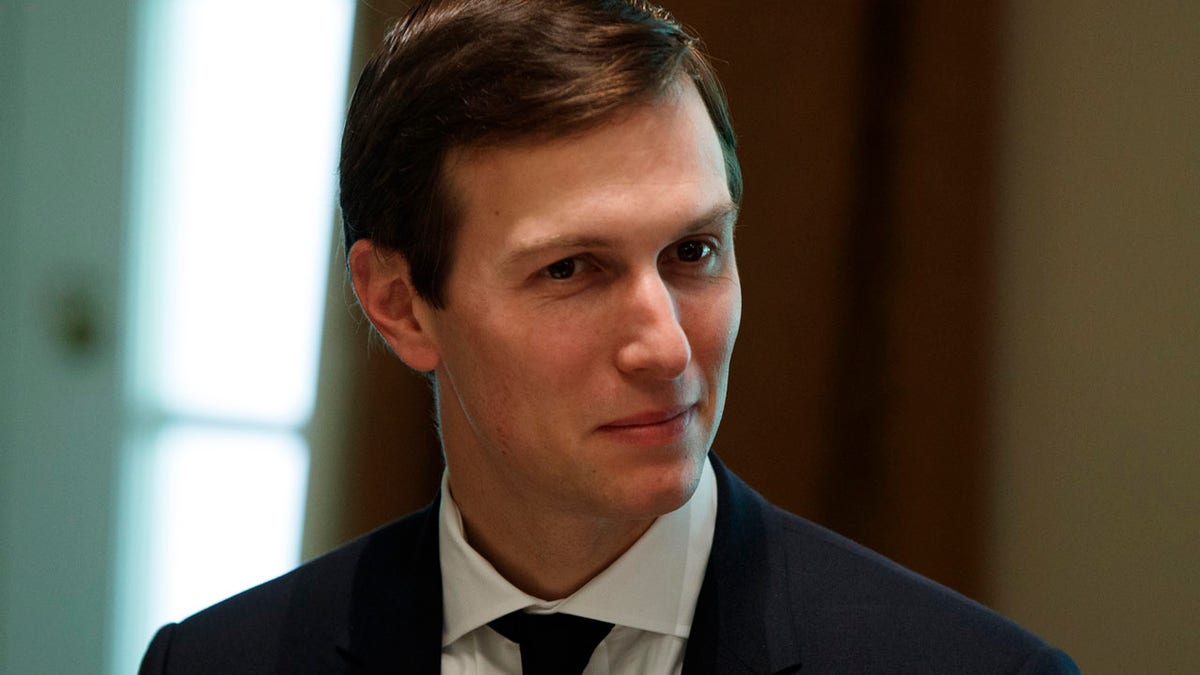
White House senior adviser Jared Kushner listens during a meeting with Palestinian leader Mahmoud Abbas at the White House, Wednesday, May 3, 2017, in Washington. (AP Photo/Evan Vucci) (AP)
Jared Kushner's reported attempt to establish a "back-channel" between Russia and Donald Trump's presidential transition team has been a point of contention, even if such talks aren't uncommon.
Here's what you should know about back-channel diplomacy.
What is back-channel diplomacy?
It refers to unofficial but direct, high-level communications that bypass formal channels. Such talks can help governments work through problems and reduce tensions in lower-pressure settings.
What was Kushner up to?
Kushner spoke to Russian Ambassador Sergey Kislyak about opening a line of communication to explore options as the new administration developed a Syria policy, according to a person familiar with the discussions. The goal was to connect Michael Flynn, Trump's then-chief national security adviser, with Russian military leaders. In Syria's civil war, Russia has backed Assad -- while the United States has supported anti-Assad rebels.
Kushner allegedly proposed using Russian diplomatic facilities for the discussions, apparently to make them more difficult to monitor, according to a report. Flynn never ended up using Russian facilities to talk to Moscow, U.S. officials said.
What about the context of Kushner's outreach?
Kushner's outreach, at a time of alleged Russian meddling in the U.S. election, has fed accusations of Trump campaign collusion, which the FBI is investigating.
Contacts between a transition team and foreign diplomats are normal, Eliot Cohen, a veteran of George W. Bush's State Department, tweeted. "What is not normal," he added, "is asking a hostile government to provide secure comms to avoid FBI/NSA surveillance."
"What manner of ignorance, chaos, hubris, suspicion, contempt would you have to have to think that doing this with the Russian ambassador was a good or an appropriate idea?" former CIA boss Michael Hayden asked on CNN. Back channels are fine, Hayden said, "but you don't do it when you're not the government and I don't think you do it using your adversary's communications system."
Is it legal?
Kushner's contacts revived talk about the Logan Act, which prohibits U.S. citizens from trying to influence a foreign government in disputes with the U.S. The act has been used so rarely that legal experts say it may no longer be valid. No one's ever been found guilty of violating it.
Have other presidents used back-channel communications?
Yes. The Obama administration approved months of secret meetings between U.S. and Iranian officials to clinch an interim 2013 nuclear deal.
Back-channel diplomacy with Cuba spans the secret talks leading to Obama's 2014 agreement to re-establish diplomatic ties back to the 1962 Cuban missile crisis, when John F. Kennedy was president.
President Richard Nixon used multiple back channels to interact with the Soviet Union.
What about back-channel communications during times of transition?
Nixon set up two back channels to the Soviets while waiting to take over from President Lyndon Johnson, said U.S. Naval War College professor Richard Moss.
There have been allegations of back-channel talks between aides close to Republican Ronald Reagan and Iran in 1980 amid U.S. negotiations to release American hostages in Iran. Reagan denied such parallel talks. The hostages were freed hours after his 1981 inauguration.
Obama wasn't averse to informal diplomatic channels before his 2008 election. Foreign policy adviser Daniel Kurtzer met with Syrian President Bashar Assad's foreign minister that summer - and the Obama's campaign stressed Kurtzer wasn't a paid adviser or authorized to conduct talks with any government. Obama's rival, Sen. John McCain (R-AZ) criticized the outreach. McCain is now among those raising concerns about Kushner's proposed back-channel talks.
The Associated Press contributed to this report.




